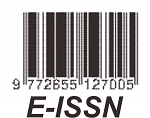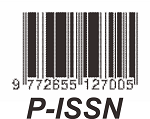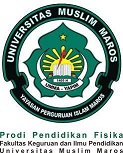PENGARUH PENGGUNAAN ALAT PERAGA SMART TRASH BIN TERHADAP PEMAHAMAN KONSEP FISIKA MATERI TEKNOLOGI DIGITAL
DOI:
https://doi.org/10.46918/karst.v7i1.2072Keywords:
Alat Peraga smart trash bin, Pemahaman konsep, Teknologi digitalAbstract
Pengaruh Penggunaan Alat Peraga Smart Trash Bin Terhadap Pemahaman Konsep Fisika Materi Teknologi Digital. The purpose of this study is to determine the understanding of the concept of digital technology classes taught and not taught using smart trash bin props, knowing the difference in understanding the concept of digital technology classes taught and not taught using smart trash bin props. The type of research is experimental with a posttest-only control design. The instrument used tests the understanding of concepts. Data analysis techniques use descriptive and inferential analysis. The average score of concept comprehension test results in classes taught using smart trash bin props was 80.42, with a very high category, while in classes that were not taught using smart trash bin props, it was 76.04, with a high category. The average value of the concept understanding test results taught with smart trash bin props is greater than the average value of the concept understanding test results that are not taught using smart trash bin props, so it can be concluded that the use of smart trash bin tools has a positive influence on the understanding of the concept of digital technology material. Meanwhile, the results of hypothetical testing obtained a significant value of 0.194 > 0.05, meaning that there was no significant difference in understanding of concepts between classes taught and not taught using smart trash bin props.
References
Anwar, K., Rusdiana, D., Kaniawati, I., & Viridi, S. (2020). Desain Pembelajaran Gelombang Untuk Membentuk Calon Guru Fisika Yang Terampil, Berbudaya Dan Paham Teknologi Digital. Jurnal Penelitian Dan Pengkajian Ilmu Pendidikan: E-Saintika, 4(1), 26–37.
Badu, T. K., & Ikbal, M. S. (2020). Perbedaan Pemahaman Konsep Fisika Siswa Melalui Model Problem-Based Learning Dan Pembelajaran Interaktif:(Differences In Students’ Understanding Of Physics Concepts Through The Problem-Based Learning Model And Concept-Based Interactive Learning). Uniqbu Journal Of Exact Sciences, 1(2), 23–30.
Febrianti, K. V., Bakri, F., & Nasbey, H. (2017). Pengembangan Modul Digital Fisika Berbasis Discovery Learning Pada Pokok Bahasan Kinematika Gerak Lurus. Wapfi (Wahana Pendidikan Fisika), 2(2), 18–26.
Hasriani, H., & Jafar, A. F. (2017). Penerapan Media Pembangkit Listrik Tenaga Air (Plta) Terhadap Keterampilan Siswa. JPF (Jurnal Pendidikan Fisika) Universitas Islam Negeri Alauddin Makassar, 5(2), 89–95.
Kartika, Y. (2018). Analisis Kemampuan Pemahaman Konsep Matematis Peserta Didik Kelas Vii Smp Pada Materi Bentuk Aljabar. Jurnal Pendidikan Tambusai, 2(2), 777–785.
Sagita, S. R. I. M., Khotijah, S., & Amalia, R. (2015). Pengkonversian Data Analog Menjadi Data Digital Dan Data Digital Menjadi Data Analog Menggunakan Interface PPI 8255 Dengan Bahasa Pemrograman Borland Delphi 5.0. Faktor Exacta, 6(2), 168–179.
Salsabillah, S., Sudarti, S., & Supeno, S. (2018). Analisis Penguasaan Konsep–Konsep Fisika Pokok Bahasan Gelombang Elektromagnetik Pada Siswa Kelas Xii SMA. FKIP E-PROCEEDING, 3(1), 259–267.
Sugiyono, D. (2013). Metode Penelitian Pendidikan Pendekatan Kuantitatif, Kualitatif Dan R&D.
Tina, A., Saehana, S., & Wahyono, U. (2021). Pengembangan Media Alat Praktikum Pelayangan Gelombang Berbasis Mikrokontroler Arduino Uno. Jurnal Inovasi Dan Pembelajaran Fisika, 8(2), 168–183.
Wahab, A. (2021). Pengaruh Metode Praktikum Berbasis Arduino Uno Terhadap Keterampilan Proses Sains Dan Kemampuan Pemahaman Konsep Fisika Peserta Didik Kelas X MIA MAN 1 Majene. Univers
Downloads
Published
Issue
Section
License
Karst : Jurnal Pendidikan Fisika dan Terapannya, adalah Jurnal Akses Terbuka (Open Access Journal). Penulis yang menerbitkan artikelnya dalam jurnal ini setuju dengan ketentuan berikut:

This work is licensed under a Creative Commons Attribution-ShareAlike 4.0 International License.
You are free to:
- Share — copy and redistribute the material in any medium or format
- Adapt — remix, transform, and build upon the material for any purpose, even commercially.
- Attribution — You must give appropriate credit, provide a link to the license, and indicate if changes were made. You may do so in any reasonable manner, but not in any way that suggests the licensor endorses you or your use.
- ShareAlike — If you remix, transform, or build upon the material, you must distribute your contributions under the same license as the original.
- No additional restrictions — You may not apply legal terms or technological measures that legally restrict others from doing anything the license permits.








94.jpg)

















